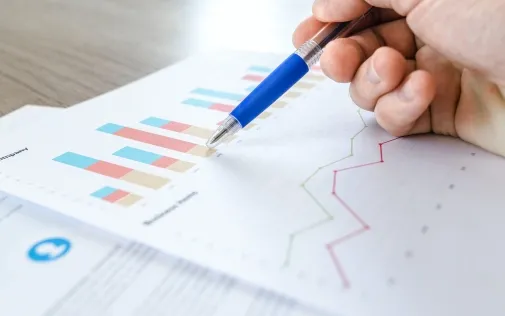
We can no longer look the other way and pretend that they are not with us. We have no more excuses. Data floods us and we have to decide if we want to swim or drown in it.
For some years now, big data has grown to become a trend that is here to become a game changer… and yes, it is a very important toolbox that can help to improve many of our life and productive processes, but in reality it is nothing but another tool that helps us advance -at last- towards a path that for too long we had shrugged off and that the smarter sectors had embraced in their daily lives for immemorial times.
Let’s say we go to a restaurant, just to give an example. How are orders for products placed with suppliers? With a careful analysis of preceding consumption patterns and depending on the season, and the available storage. How to decide how many rations should be left partially prepared in advance? With a careful analysis of the preferred selections on the menu the last times they were offered. How to decide what food is on the menu and which can be swapped for other options? With a careful analysis of the choice, profitability and ease of preparation of those available until then.
We were surrounded by data; we and our environment generate them every single day, and data have always helped us to make the best decisions in every field of our lives if we are able to identify them, count them into the equation and analyse them properly; whether we are aware of this or not, sometimes we do this through intuition and without a real method.
And indeed, what big data allows for today is to systematise all these processes. Not only do we have data we can measure, but data are pouring in from all around us and can be compared. The challenge now is to select the right data and discard others, the skills to deal with data are much more at hand and the software to dissect and visualise data are here and are often simple, open and free.
Data haven’t just landed in our lives and societies from nowhere. It’s simply that we can no longer turn our back on them and pretend they’re not ours to deal with. There are no excuses. We are all around us and we need to decide whether we want to swim in them or drown in them. Data are no longer a secret only for skillful and experimented alchemists to understand, transform and benefit from.
There was a point where citizens realised that learning to read and write wasn’t just for the elites and experts, but a need to progress. Failing to learn this meant losing out on opportunities compared to those who did, and they weren’t prepared to let those opportunities pass. The same holds true for data today.
Once again, the economic sector was the first and fastest to see this and was fast at pouring resources into this to make the most out of their data and ours, going as far as using our data to encourage us to consume even more. But what about others? Does it make sense for politicians, communicators and other prominent opinion leaders to instill fear with statements saying homes are being squatted, insecurity is skyrocketing, or that immigration is leading to hardship if we journalists don’t use data to bring down these falsehoods for real?
How can one explain that the public administration spends millions on public policies without a proper and systemic assessment on how effective these policies really are? Turning to the non-profit sector, at a moment where it is difficult to stand strong after the pandemic, is there a methodical analysis of the people’s profiles to discover potential and weaknesses, what actions work well or not so well compared to the effort they take, and what are the demands generated internally, and which come from the existing and potential environment?
Data do not account for everything, that’s clear. They should not become the cornerstone of a technocratic, cold and impersonal religion. But to fail to use data would be to say we want to move forward but with a lame leg.



Add new comment